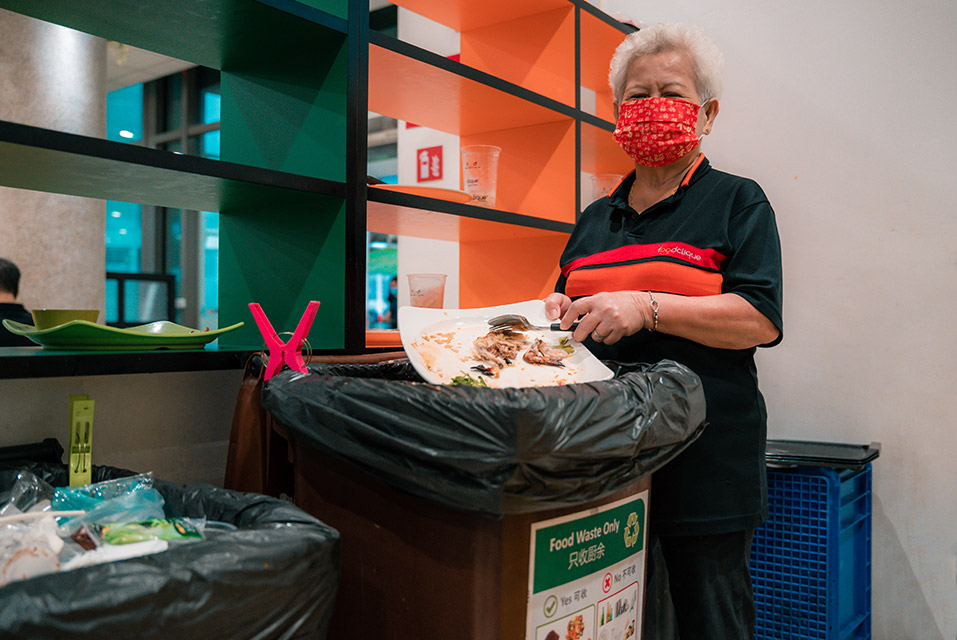Recycling of Campus Food Waste
Dining establishments such as canteens, food courts and student dining halls with operational kitchens generate waste as a result of their activities. According to a waste composition study conducted by a group of Faculty of Engineering students in April 2020 at The Deck canteen, the bulk of waste generated in the canteen comprised food waste from food preparation processes and leftovers after consumption. Cardboard and plastic packaging from supplies, single-use disposables, and non-recyclables such as used tissue papers made up the rest.
In the past four to five years, NUS has successfully diverted most of its food waste from the incineration plants. Since Dec 2016, the University has participated in an initiative by the National Environment Agency (NEA) to collect food waste from dining establishments on campus for co-digestion with used water sludge for energy recovery at a treatment facility located at Ulu Pandan. Most canteens, food courts and student dining halls with operational kitchens are now participating in this initiative.
Under this initiative, stall tenants, kitchen staff and cleaners are required to deposit their food waste from food preparation and leftovers into dedicated recycling bins and containers. The food waste is then collected daily by NEA’s appointed food waste recycling company and taken to the co-digestion facility.
In FY 2020, about 165 tonnes of food waste was sent to the co-digestion facility for recycling. Moving forward, all dining establishments on campus will participate in this initiative.

